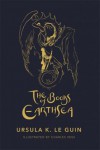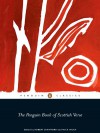100
Followers
65
Following
Arbie's Unoriginally Titled Book Blog
It's a blog! Mainly of book reviews.
Currently reading
Station Zero
Progress:
220/282 pages
The Books of Earthsea: The Complete Illustrated Edition
Progress:
749/997 pages
The Penguin Book of Russian Poetry
The Uncertain Land and Other Poems
Progress:
8/160 pages
The Heptameron (Penguin Classics)
Progress:
152/544 pages
The Poems and Plays of John Masefield
Progress:
78/534 pages
Poems Selected
Progress:
4/50 pages
Selected Poems
Progress:
18/160 pages
The Penguin Book of Scottish Verse
Hainish Novels & Stories, Vol. 2
Progress:
133/789 pages
 For me and, I suspect, many others, one of the things that makes SF uniquely fun is being dumped into a world that is far-future or otherwise alien and having to figure out how it all works and maybe how we got there from here: having culture/future shock and coming to terms with it as the book progresses. In this book, May treats us to a prolonged description of the galaxy spanning culture that humans have joined (it reminds me of Harrison's Stainless Steel Rat books, without the humour and with aliens) and lengthy introductions to many of the protagonists, whilst also introducing the key McGuffin of a one-way time-portal to the Pliocene period on Earth. All of this takes approx. 100 pages and does everything it can to eliminate any chance of shock at all.
For me and, I suspect, many others, one of the things that makes SF uniquely fun is being dumped into a world that is far-future or otherwise alien and having to figure out how it all works and maybe how we got there from here: having culture/future shock and coming to terms with it as the book progresses. In this book, May treats us to a prolonged description of the galaxy spanning culture that humans have joined (it reminds me of Harrison's Stainless Steel Rat books, without the humour and with aliens) and lengthy introductions to many of the protagonists, whilst also introducing the key McGuffin of a one-way time-portal to the Pliocene period on Earth. All of this takes approx. 100 pages and does everything it can to eliminate any chance of shock at all.It's a real chore to hack through, especially as almost all of it is redundant. One could start at the beginning of Part 2 of this book and figure out almost everything of importance easily, I suspect. That would have been much more fun.
There are other problems: four of the people we are introduced to back in the future are just dropped about half way through - never to be heard of again, though supposedly returned to in the inevitable sequel. All the characters are misfits or psychologically damaged and the advanced, psychic clinical psychology of the future can't help them. Going to the Pliocene and having a revelatory conversation with a stand-in therapist figure does wonders for more than one of them, however. My eyes roll.
So we eventually get on to a "rebel freedom fighters take on the mighty overlords" adventure which is amusing enough. The "this explains the whole of Irish Celtic myth and a few other stories besides" set up is not really all that interesting. So as a throw-away paperback to read whilst ill it was just about good enough but I can't say I'm in any hurry to read the sequel.










